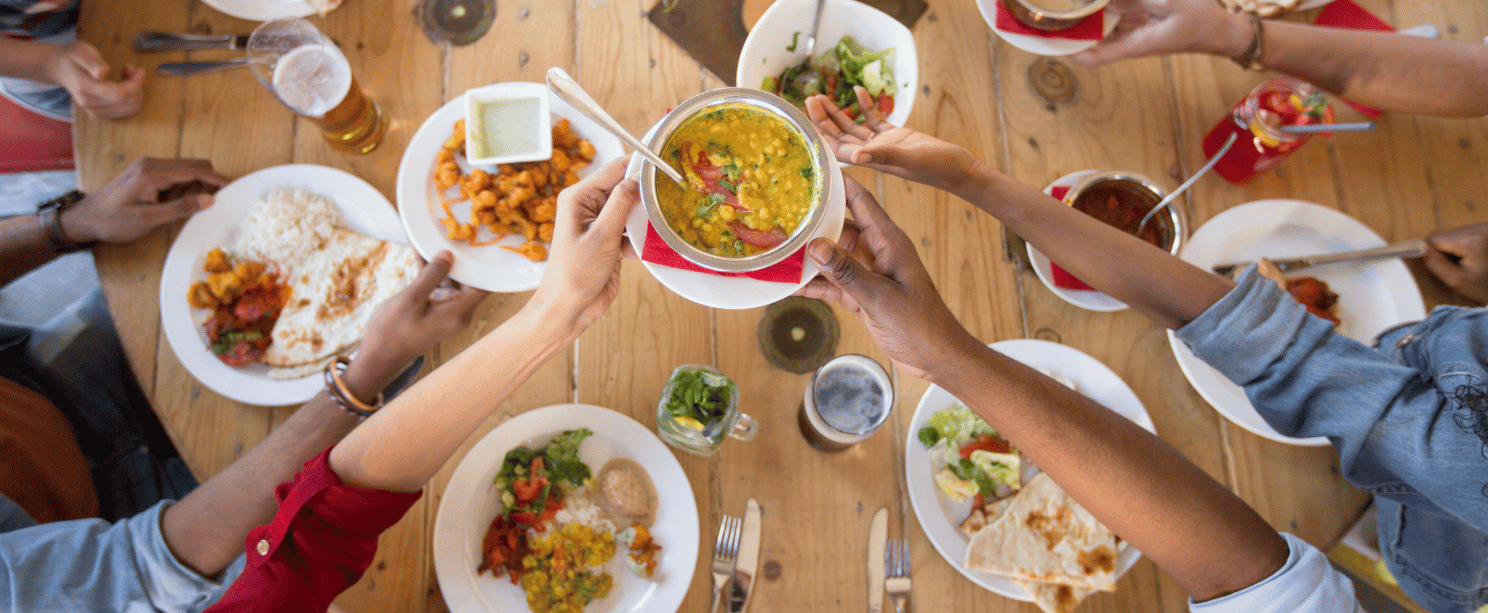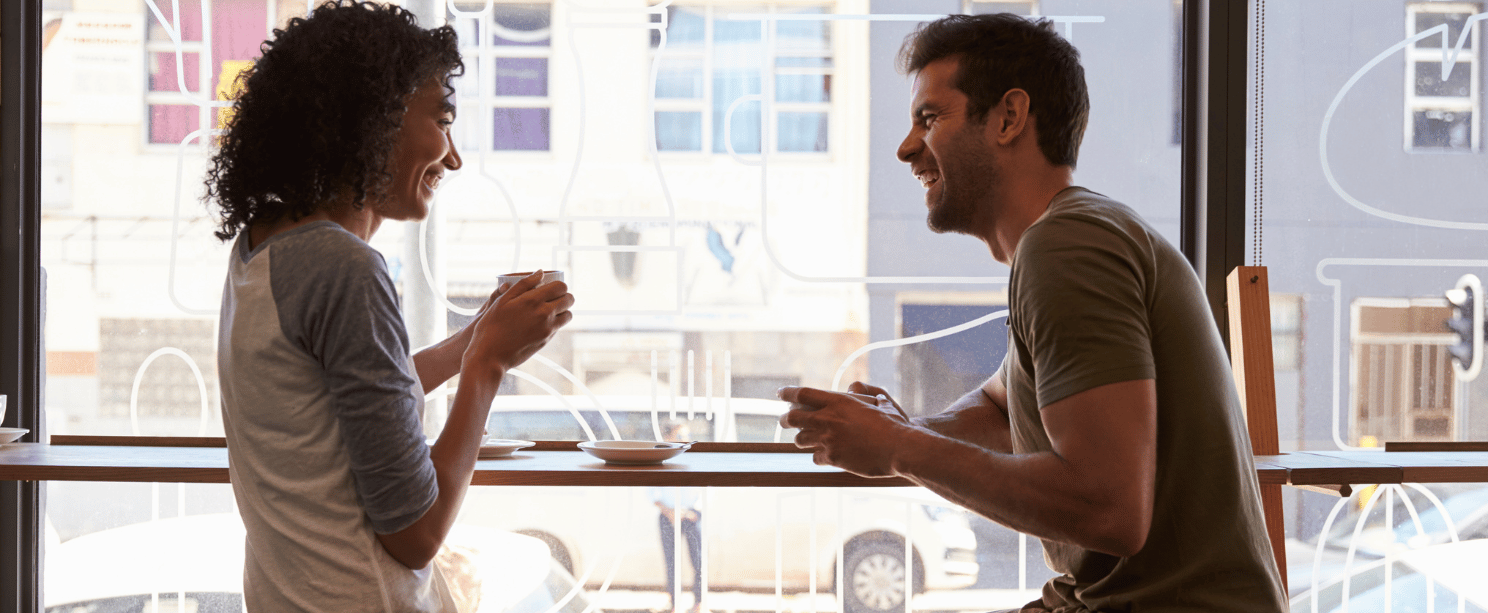
Living with diabetes comes with unique challenges, but it shouldn’t prevent you from enjoying a vibrant social life. Whether attending family gatherings, dining out with friends, or celebrating special occasions, social events often revolve around food and drinks, making diabetes management more complex. However, with some thoughtful planning and simple strategies, it’s possible to balance diabetes care while staying engaged in social activities. Here, we'll provide a few tips on how to manage diabetes and enjoy an active social life.
How Can Diabetes Impact Social Interactions
Diabetes mellitus can impact social interactions in several ways, both physically and emotionally. For example, attending parties where food choices may be limited or eating at restaurants with large groups of people can bring unique challenges to diabetes care. For others, declining certain foods or asking about ingredients can feel awkward. Still, others may have trouble saying no after feeling pressured to drink.
Beyond dietary concerns, diabetes can also affect energy levels and mood. Blood sugar fluctuations may lead to irritability, fatigue, or difficulty concentrating, which can influence interactions with friends and family. Research suggests low blood sugar can contribute to aggression or impatience, while high blood sugar can cause sluggishness or discomfort. Additionally, the stress of managing diabetes in social settings can sometimes lead to anxiety or a feeling of being different from others.
The interesting relationship between diabetes and mood, however, is that they both appear to affect each other. Yes, blood sugar can affect mood, but mood may also affect blood sugar.
Several aspects of diabetes management can be challenging in these situations. However, that doesn't mean you have to forgo an active social life. There are plenty of ways you can incorporate self-care into social situations while living with diabetes.
10 Tips to Manage Diabetes and An Active Social Life
You can have an excellent social life, regardless of whether you have type 1 diabetes, type 2 diabetes, or any other form of diabetes. The key is finding a good balance between diabetes self-management and healthy social connections to enrich your life. To help you make the most out of every social gathering without any adverse effects of diabetes, here are a few tips:
1. Communicate With Loved Ones
While it can be difficult at first, being open with friends and family about your diabetes can help foster a more understanding and social environment. It can also be more empowering and help you take control of your choices. Let people know about your needs and help them understand diabetes and what that means to your daily life. However, you don't have to tell anyone if you don't want to. Doing what's comfortable for you is what's most important. If you're not ready, that's okay. Take your time, and when you are ready to share, help educate the people in your life to help debunk common diabetes myths.
2. Regularly Check Blood Glucose Levels
Even when you're out celebrating, diabetes is still a health condition that requires ongoing care. To help you make informed decisions about your care, continue to monitor blood sugar levels before, during, and after social events. Continuous glucose monitors (CGMs) can help you keep an eye on your blood sugar throughout the night without using finger pricks. If you notice any changes in blood sugar that require attention, address them promptly and continue blood glucose testing until they're stabilized.
3. Do Some Research Before Dining Out
Dining out with diabetes can be stressful, but it's not impossible. Many restaurants carry healthy, low-carb options that can be enjoyed guilt-free. To help you make informed decisions, check the menu online before going out. This gives you plenty of time to consider your options or make a list of questions you may have about certain dishes. Many places will provide detailed nutritional information, which is a great way to plan diabetes-friendly meals while out and about.
If you're unsure about an ingredient or preparation method at the restaurant, don't hesitate to ask the staff for details or adjustments. To manage portion control, you can also ask for a takeaway box while ordering to help avoid overeating.
4. Enjoy Full Carb Foods in Moderation
Regardless of if you’re going to a restaurant or visiting a friend's house, you don’t always have to focus on low-carb options. Counting carbs is a great diabetes management tool that can be applied to any situation, yes. That doesn’t mean you can’t enjoy a home-cooked meal or your favorite dish at a restaurant. It’s okay for blood sugars to not be perfect all the time. To help with balance, try opting for sugar-free drinks like sparkling water, unsweetened tea, or diet sodas can also help keep blood sugar levels stable.
Still, social gatherings and diabetes management is a major stress point for many people with diabetes. If you or someone you love is exhibiting signs of social avoidance related to food, or if the strain of balancing diabetes management with your social life is overly burdensome, reach out for mental health resources in your area.
5. Be Mindful of Alcohol Consumption
Alcohol can affect blood sugar in complex ways, potentially causing both highs and lows. If you choose to drink, consume alcohol in moderation and pair it with food to reduce the risk of hypoglycemia. Keep in mind that symptoms of low blood sugar can sometimes mimic intoxication, so monitoring your levels and informing a close friend about your condition can be helpful. Although you can enjoy yourself with diabetes to a degree, binge drinking and illegal drugs that could interfere with your diabetes medications are never recommended.
6. Have Your Diabetes Supplies With You
Life with diabetes also means carrying diabetes supplies with you at all times. This is the best way to avoid serious diabetes-related complications like hypoglycemia or diabetic ketoacidosis. Always carry essential supplies to ensure you're prepared for worst-case scenarios. This may include your glucose meter, test strips, insulin, glucose tablets, or snacks in case of low blood sugar. Your doctor may also recommend having other items or creating a mini diabetes emergency kit as an extra precaution in certain social situations.
7. Try to Manage Stress and Sleep
Everyone has a different social battery, and yours may run out quickly. That's okay. Social events can sometimes be overstimulating, leading to stress that may impact blood sugar levels. Practicing relaxation techniques, such as deep breathing or mindfulness, can help you stay calm. Additionally, prioritizing good sleep before and after social engagements supports overall blood sugar regulation and energy levels. If you're struggling to manage either, talk to your doctor. Stress and lack of sleep may contribute to a higher risk of diabetes distress, which can be dangerous if not addressed.
8. Mix Socialization With Physical Activity
Although a lot of adult socialization is centered around eating and drinking, you can do hundreds of other activities. So, instead of only hanging out with friends or family over a meal or at the bar, try suggesting something active. Exercise is a great way to manage blood sugar levels and mitigate the effects of chronic conditions like diabetes.
You can take a class together or go for a scenic walk in your neighborhood. If you live near a forest, national park, or mountain, take a day trip to go on a hike. Try a new skill, or go for a swim. Finding ways to stay active while having fun can be a win-win for your health and social life.
9. Set Boundaries Without Guilt
You may have one or two persistent people who simply don't understand how diabetes affects your daily decisions. They may continue to pester you, saying, "One more drink won't hurt," or that you can "have your cake and eat it too." While this is true (moderation is key), you should make these decisions on your own—when you want to.
So, it’s okay to say no to foods, drinks, or situations that don’t align with your health goals. You don’t need to explain or justify your choices to anyone, and setting boundaries can help you feel more confident and in control. Luckily, surrounding yourself with supportive people who respect your decisions makes a big difference.
10. Enjoy Yourself Without Overthinking
While diabetes management is important, it shouldn’t overshadow your ability to have a good time. Enjoy the moment, engage with those around you, and remember that one meal or event won’t define your overall health. Balance, flexibility, and self-compassion are key to maintaining both diabetes management and a fulfilling social life.
Living with diabetes doesn’t mean missing out on social activities—it just means making mindful choices that support your well-being. Finding a balance that allows you to enjoy life without compromising diabetes management is not only possible but completely achievable. To help you get there, talk to your doctor about ordering high-quality diabetes products from Byram Healthcare today.



